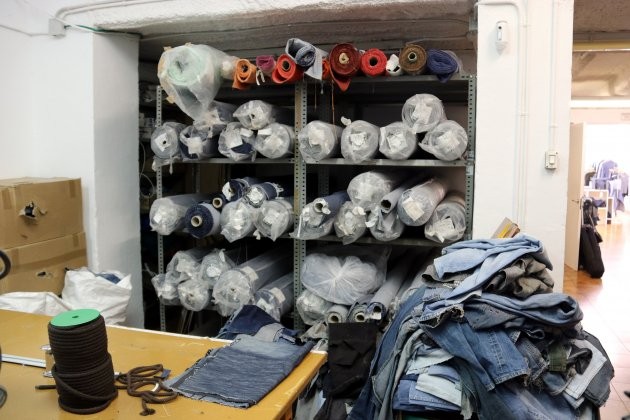The production ofzero kilometer or with recycled materialsis increasingly important in the textile sector. The number of sustainable fashion brands in Catalonia has increased by one 23% in the last year, according to data from the Ethical Time platform. The pandemic has also generated a positive effect and has helped to accelerate the commitment to local products.
“Today, a company has no future if the element of sustainability is not considered in its equation”, recognizes the general manager ofTrade of the Department of Business and Knowledge, Mount Vilalta, in statements to the ACN. From this area, Vilalta defends sustainability and digitization as key elements to promote Catalan brands on an international scale.
“The 2013, more than a thousand people died in a textile factory in Bangladesh. It was a turning point from which international awareness of the fashion sector increased greatly”, assures the founder and general director of Ethical Time, Ignasi Eiriz. Movements like 'Fridays for Future’ or the positioning of large international companies in favor of sustainability have also contributed to generating a change in the consumer, which bets more and more on sustainable brands.
Grow more than one 20%
In fact, these have grown one 23% in Cataloniain the last year and one 21% throughout the State. “More and more companies are incorporating the concept of sustainability in brand positioning”, says Vilalta. The pandemic has had a positive impact on this type of company because it has strengthened the consumer's commitment to local products.
The coronavirus crisis has caused an impact “forceful” in the fashion industry, amb declines in sales up to 40%. Despite this, “companies that have opted for sustainability values have had an element of growth”, explains the general director of Commerce. “People have started to value the product and local manufacturing. The change that had begun to take place in the food sector, now it has made the leap into fashion”, explains the Iaios designer, Gemma Barbany.
The company was created on 2016 and produces sweaters made from regenerated yarn, recovered from scraps of textile manufactures. “We buy the thread in Olot, We do the fabric and the tailoring in Igualada, and we design and distribute the product from Granollers”, says Barbany. The company has increased sales compared to last year and, during the confinement he has been able to “stop the blow” thanks to online sales.
El ‘greenwashing’
The increase in these companies has also been accompanied by the so-called 'greenwashing'. “Only one in eight companies that claim to be sustainable carry out more practices than producing with recycled material”, says Eiriz. For this reason, Ethical Time has developed a certificate with the aim of distinguishing which brands are truly sustainable.
For the general manager of the company, sustainability goes far beyond materials, and it also takes into account where the garments are produced, which hybrid and energy resources are consumed to produce them, what is its useful life and, even, what working conditions are behind the production chain. Eiriz reports that, unlike the food industry, the fashion sector is not regulated and, so, consumers cannot clearly differentiate which companies are truly sustainable.
the sectr textile is the second most polluting in the world, behind the oil.“They are issued every year 1.200 millions of tons of greenhouse gases on a global scale, he 10% of gases from all sectors”, explains Eiriz. Faced with this situation, the co-founder of Infinit Denim proposes to tend towards circular fashion, the “uniformity” fabric and local production. “Sustainable fashion is a bet for more price, less quantity and more quality”, adds Barbany.
The demands of the sector
For the consolidation of sustainable fashion in the sector, the brands ask greater regulation and a clear commitment by the administrations to small businesses. “We are few and, if we disappear, it would be a disaster in the economic field”, says the Iaios designer.
For his part, the Generalitat works on thepromotion of sustainability and digitization as key elements to position the Catalan fashion sectorinternationally. “In Catalonia we have a very important center of creativity and design, and we have to believe it”, says Vilalta. recently, Comerç has also promoted the first fashion accelerator and is working to promote that companies can access digitization training.






